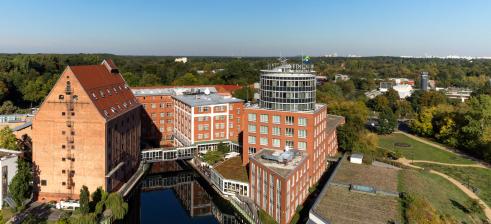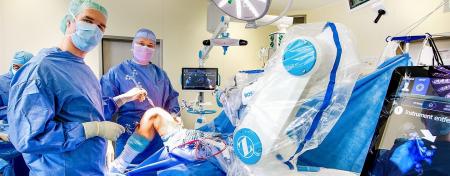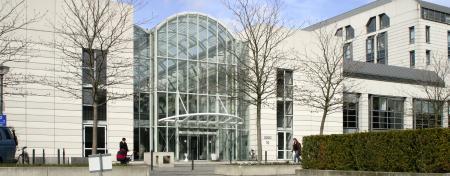Rehabilitation in Berlin

After an operation or serious disease, rehabilitation may help the patient concerned to resume a healthy and independent lifestyle. Depending on the particular situation and illness, rehabilitation may include physical therapy, speech therapy, physiotherapy, equipment-based training and many other types of therapy. Specialist rehabilitation doctors accompany the patient on their path back into normal life. This may happen on an inpatient basis in the hospital or in an outpatient clinic.
Among the most common indications for rehabilitation are neurological diseases such as a stroke. Once the condition has been treated in the hospital, early-phase rehabilitation begins, initially stimulating the patient’s motor and sensory functions. Patients may then be taught by an occupational therapist how to dress or wash themselves. During the subsequent phase, patients prepare themselves for everyday life outside the hospital, practising routine processes and gaining in confidence. Besides neurological rehabilitation, a patient may be offered orthopaedic rehabilitation following an operation, cardiological rehabilitation after a heart attack or oncological rehabilitation following cancer therapy.
Hospitals and doctors' surgeries
6 results
Comprehensive medical care

Your Checklist – for a pleasant stay
-
1 Preparations
Describe your concerns and send the necessary documents to the hospital.
-
2 Relevant documents
Inform yourself about your medical visa and select all documents.
-
3 Stay
Inform yourself in time about your hospital and a appropriate accommodation.
-
4 After discharge
Verify if you will need a medication or further treatment.










